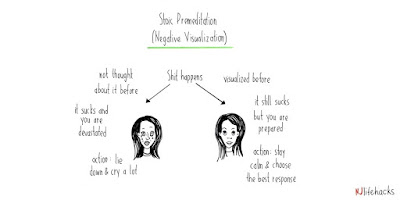Hope
Roxanne Cooper
AlterNet
January 12, 2019
“But if TED and the 19th century lecture circuits—the new lyceum and the old—can offer us anything, it’s a reminder that science and research offer more than new knowledge. They come with a kind of aesthetic, and they invoke certain emotions—among them thrill and hope. ... [A] certain fuzzy optimism takes hold. There’s a promise here that would be familiar, I think, to anyone who’s been moved by a great motivational speech or sermon. It’s a sense that, faced with the grind of daily life, and the intractability of its problems, somehow, through some flash of understanding, the basic terms of our struggle will change.”
“Thrill?” I’ll pass. “Hope?” Okay, but not based on “fuzzy optimism” or “somehow” or “some flash of understanding.”
I am not dark, gloom and doom, or nihilistic. I am not a hedonist or an Epicurean. I am a realist, skeptic and flawed practitioner of Stoicism. I am only optimistic and have hope when there are reasons and evidence for being hopeful.
I was last hopeful about the US and Humankind, the majority of whom seem to follow our social and cultural lead, when Obama was elected and served as president.
When the US democratic election process replaced Obama with Trump I began publicizing my reactions and financially supporting progressive causes. I did not and do not financially support political causes because I think the US political and economic system, and the dominant beliefs and values underpinning that system, are irrevocably flawed and doomed to fail. I also did not go into hopefulness when Trump took over.
When Trump and his political party took office and began dismantling our government and subverting our democratic institutions, and accelerating the capitalist-consumer race toward catastrophe, I chose realism. It doesn’t make me feel as good as blind or faithful hopefulness might, but it makes me think I am being honest and truthful about the extreme peril we face.
When convincing reasons and strong evidence are absent I am not content with nevertheless being hopeful. That is, hopeful in the sense this writer describes it: “fuzzy optimism,” “somehow” or “through some flash of understanding, the terms of our struggle will change.”
I try to muster what average courage I have, study up, confront reality, do what is within my power and control to change that reality, then prepare for the worst, not the best.
Allowing myself an emotional hopefulness without good reasons or demonstrable evidence is no real comfort. There are no such reasons and evidence at present. Such hopefulness is like prayer or crossing my fingers for good luck. In fact it sets me up for grave disappointment if things don’t improve to my liking. Preparation, however, is a comfort.
After virtuous action has been taken on what one can control, the Stoics advise that one then prepare to accept what comes. Preparation they say involves, in part but not exclusively, visualizing possible negative outcomes in one’s personal life and more broadly.
Philosopher and biologist Massimo Pigliucci citing philosopher William Irvine, another expert on Stoicism, has a good approach to a personal or societal reality that has gone bad and is likely to get worse, “negative visualization”: https://howtobeastoic.wordpress.com/2015/03/26/irvine-on-negative-visualization/.
I support my friends and all others who are hopeful for and work toward a more Enlightened country and world. I will stand with you and do what I can to help make a better reality return. All the while I will look forward to better reasons and evidence for hope than those currently being given.

Comments
Post a Comment